The Human Flies - [14]
The niece and nephew had nothing more of any relevance to tell. I said goodbye to them around ten and promised to inform them as soon as there was anything new to report in connection with the murder investigation. The history student Bjørn Erik Svendsen was added to the top of my list of people to contact as soon as possible. It struck me as odd that I still had not heard from him two days after the murder. Fortunately, this little mystery was quickly cleared. It transpired that a message from a woman who had called as she absolutely had to talk to me was from a certain Hanne Line Svendsen, and she was Bjørn Erik Svendsen’s mother. She said that her son had gone to an international socialist youth conference in Rome, but had been informed of the murder by telephone and telegram. He was expected home late on Sunday evening and would come to the police station first thing on Monday morning. Bjørn Erik Svendsen had said, on a very bad line from Rome, that it was possible that he had some important information about Harald Olesen’s early life and would of course make this available to the investigation. I reluctantly accepted the news that Mr Bjørn Erik Svendsen could not be contacted before Monday morning. I tried to see it as positive that new information regarding Harald Olesen was on its way to Norway.
In the meantime, I called the law firm Rønning, Rønning & Rønning. The Rønning I needed to speak to, Edvard Rønning Junior, was unfortunately not in the office. According to his secretary, he had flown to West Berlin a couple of days earlier. The secretary apologized and sheepishly explained that there were ‘several indications’ that Rønning Junior was going to meet one or more personal friends in Central Europe, but no one knew where he was going from the airport. When he had called the office about another case on the Friday morning, he had of course been informed of Harald Olesen’s death. Rønning Junior had immediately explained that Olesen’s will had recently been ‘reworded’ and, in accordance with the explicit wishes of the deceased, would be announced six days after his death.
Rønning Junior had promised that he would personally be present to read out the will in the law firm’s offices at midday on Wednesday, 10 April. He would send a telegram ‘as soon as possible’ with a short list of the people the deceased wished to be present at the reading of the will. If the police contacted the firm, he had asked that they be informed that the most recent version of the will was responsibly secured, that all the formalities were in place and that we were welcome to come to the reading of the will on Wednesday. He had then said that he had to ‘rush to an extremely important meeting’ and hung up. Unfortunately, the will was not to be found in his office, and the telegram had not arrived yet. Thus the firm could only apologize that they could not be of any further help in the investigation. Rønning Junior was ‘an exceptionally talented young lawyer, and rigorous with regard to formalities and discretion on behalf of his clients’, the secretary concluded apologetically. I had no problem in believing her, and saw little option other than to ask Rønning Junior to contact me immediately if anyone should speak to him before Wednesday morning.
Harald Olesen’s doctor was still on sick leave, but was willing to answer questions on his private phone. Having tussled briefly with his conscience, he felt that he could make a pragmatic exception to patient confidentiality, vis-à-vis the police, with regard to a patient who was in fact already dead, as was the case. He then confirmed that Olesen had been diagnosed with bowel cancer about a year ago. This had spread more rapidly than expected in recent months and Olesen had been told in December that the end might be only a matter of months away. Olesen had received this news with admirable dignity. He had remained seated, pensive, and then said that he had some important issues to consider and sort out before it was too late. The doctor thought this was quite a natural reaction and had not enquired as to what these might be.
The bank where Harald Olesen kept his account was closed. During a search of his flat, however, several documents had been found that answered most of the questions I would have asked of the bank. Olesen had apparently been a very organized person. Statements from the past five years were in a file in one of the desk drawers. These confirmed that Harald Olesen had died a rich man. The most recent statement was from March 1968 and showed a balance of just over a million kroner. What was more striking, however, was that the statements from 1966 and the first part of 1967 showed even greater wealth. Over the past six months, the sum in Harald Olesen’s account had fallen by at least 250,000 kroner, even though his civil service pension should have been more than enough to cover the outgoings of a widowed pensioner. And the strange thing was that there were no documents in the drawer that could shed any light on where this money had gone. The sum appeared to have been paid out in three large cash withdrawals. Harald Olesen had initially taken out 100,000 kroner in October 1967, then 100,000 in February 1968 and a further 50,000 one month later.
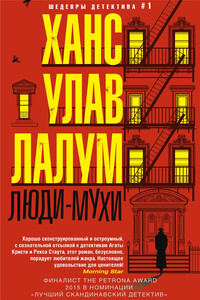
Убит бывший лидер норвежского Сопротивления и бывший член кабинета министров Харальд Олесен. Его тело обнаружено в запертой квартире, следов взлома нет, орудие убийства отсутствует. На звук выстрела к двери Олесена сбежались все соседи, но никого не увидели. Инспектор уголовного розыска Колбьёрн Кристиансен считает, что убийство, скорее всего, совершил кто-то из них. Более того, он полагает, что их показания лживы.
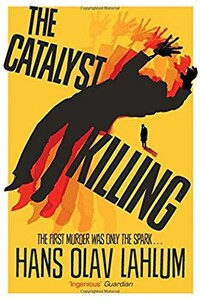
The third mystery in the hugely compelling, bestselling international crime series from Norway's answer to Agatha Christie, Hans Olav Lahlum, The Catalyst Killing will have you guessing to the final clue. The first murder was only the spark… 1970: Inspector Kolbjorn Kristiansen, known as K2, witnesses a young woman desperately trying to board a train only to have the doors close before her face. The next time he sees her, she is dead… As K2 investigates, with the help of his precocious young assistant Patricia, he discovers that the story behind Marie Morgenstierne's murder really began two years ago, when a group of politically active young people set out on a walking tour in the mountains.
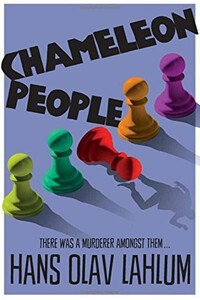
From the international bestselling author, Hans Olav Lahlum, comes Chameleon People, the fourth murder mystery in the K2 and Patricia series.1972. On a cold March morning the weekend peace is broken when a frantic young cyclist rings on Inspector Kolbjorn 'K2' Kristiansen's doorbell, desperate to speak to the detective.Compelled to help, K2 lets the boy inside, only to discover that he is being pursued by K2's colleagues in the Oslo police. A bloody knife is quickly found in the young man's pocket: a knife that matches the stab wounds of a politician murdered just a few streets away.The evidence seems clear-cut, and the arrest couldn't be easier.
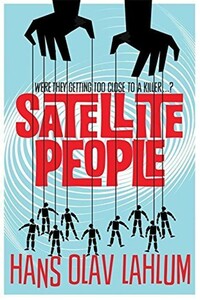
A gripping, evocative, and ingenious mystery which pays homage to Agatha Christie, Satellite People is the second Norwegian mystery in Hans Olav Lahlum's series. Oslo, 1969: When a wealthy man collapses and dies during a dinner party, Norwegian Police Inspector Kolbjorn Kristiansen, known as K2, is left shaken. For the victim, Magdalon Schelderup, a multimillionaire businessman and former resistance fighter, had contacted him only the day before, fearing for his life. It soon becomes clear that every one of Schelderup's 10 dinner guests is a suspect in the case.
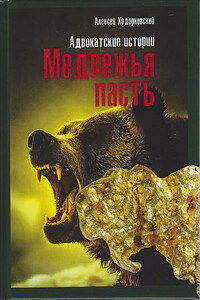
Как поведет себя человек в нестандартной ситуации? Простой вопрос, но ответа на него нет. Мысли и действия людей непредсказуемы, просчитать их до совершения преступления невозможно. Если не получается предотвратить, то необходимо вникнуть в уже совершенное преступление и по возможности помочь человеку в экстремальной ситуации. За сорок пять лет юридической практики у автора в памяти накопилось много историй, которыми он решил поделиться. Для широкого круга читателей.

Однажды Борис Павлович Бeлкин, 42-лeтний прeподаватeль философского факультета, возвращается в Санкт-Пeтeрбург из очередной выматывающей поездки за границу. И сразу после приземления самолета получает странный тeлeфонный звонок. Звонок этот нe только окунет Белкина в чужое прошлое, но сделает его на время детективом, от которого вечно ускользает разгадка. Тонкая, философская и метафоричная проза о врeмeни, памяти, любви и о том, как все это замысловато пeрeплeтаeтся, нe оставляя никаких следов, кроме днeвниковых записей, которые никто нe можeт прочесть.
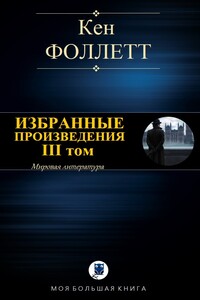
Кен Фоллетт — один из самых знаменитых писателей Великобритании, мастер детективного, остросюжетного и исторического романа. Лауреат премии Эдгара По. Его романы переведены на все ведущие языки мира и изданы в 27 странах. Содержание: Скандал с Модильяни Бумажные деньги Трое Ключ к Ребекке Человек из Санкт-Петербурга На крыльях орла В логове львов Ночь над водой.

В самой середине 90-тых годов прошлого века жизнь приобрела странные очертания, произошел транзит эпох, а обитатели осваивали изменения с разной степенью успешности. Катя Малышева устраивалась в транзитной стадии тремя разными способами. Во-первых, продолжала служить в издательстве «Факел», хотя ни работы, ни денег там почти не наблюдалось. Во-вторых редактировала не совсем художественную беллетристику в частных конторах, там и то и другое бытовало необходимом для жизни количестве. А в третьих, Катя стала компаньоном старому другу Валентину в агентстве «Аргус».

Наталия Новохатская Предлагает серию развернутых описаний, сначала советской (немного), затем дальнейшей российской жизни за последние 20 с лишком лет, с заметным уклоном в криминально-приключенческую сторону. Главная героиня, она же основной рассказчик — детектив-самоучка, некая Катя Малышева. Серия предназначена для более или менее просвещенной аудитории со здоровой психикой и почти не содержит описаний кровавых убийств или прочих резких отклонений от здорового образа жизни. В читателе предполагается чувство юмора, хотя бы в малой степени, допускающей, что можно смеяться над собой.
